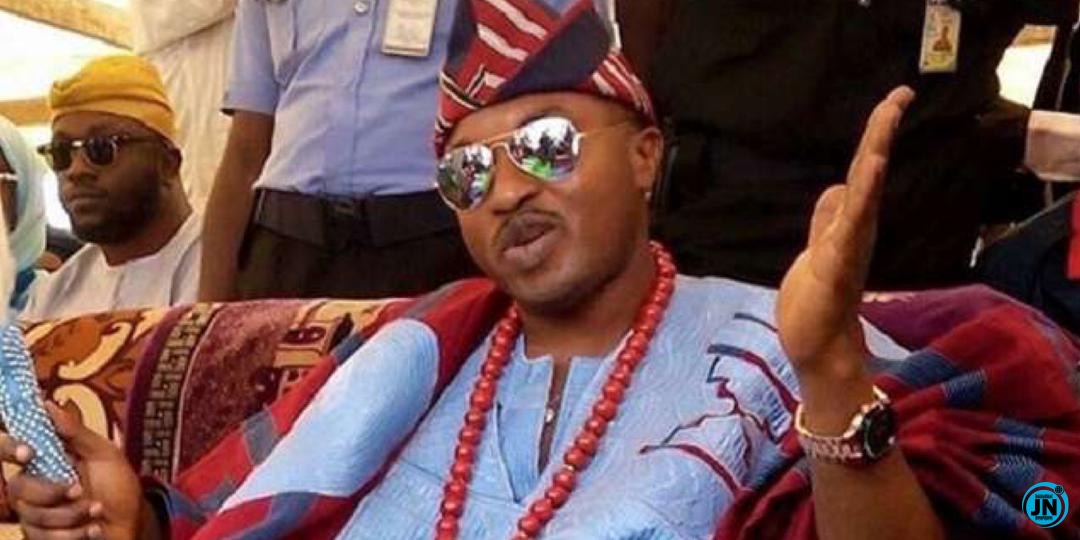
The Oluwo of Iwo, Oba Abdulrosheed Akanbi, has stirred intense debate after rejecting the long-held notion that Ile-Ife is the cradle of the Yoruba race. According to the monarch, the town of Ile-Ife does not accurately reflect the authentic culture, language, or historical traditions of the Yoruba people, challenging a widely accepted narrative in Yoruba historiography.
Oba Akanbi made this assertion in a video shared on his Facebook page on Tuesday, while conferring a chieftaincy title on one of his subjects at his palace in Iwo, Osun State. The video has since attracted widespread attention on social media and news platforms, with many Nigerians weighing in on the controversial remarks.
‘Ife Not the Origin of Yoruba’
Addressing his chiefs and attendees at the ceremony, the Oluwo stated that historical accounts of Yoruba origins have been misrepresented over the years. He emphasized that Oduduwa, a central figure in Yoruba history, only conquered Ife after settlements and civilizations had already been established in the area. This, he argued, undermines the common belief that Ile-Ife is the starting point of the Yoruba race.
Oba Akanbi also pointed out that the language spoken in ancient Ife differs significantly from what is recognized as Yoruba today. He noted that linguistic and cultural markers in Ile-Ife demonstrate a divergence from mainstream Yoruba traditions, highlighting differences in vocabulary, terminology, and religious expressions.
“Ife is not the origin of the Yoruba race. Those people don’t speak our language. Their language is different. They refer to God as Eledumare, and there is nothing like Eledumare in the Yoruba language. What we have is Olodumare,” the Oluwo explained, asserting that the distinction in language alone invalidates claims of Ile-Ife being the Yoruba cradle.
He further elaborated on other cultural differences, using examples of terms used in Ile-Ife to illustrate the point. “Ife people will always say Olofin, and if you ask them the meaning, they will tell you it means the owner of the palace. What that means in Yoruba is Alaafin. Ile-Ife has no Yoruba culture,” he declared, underlining his position that the town’s traditions are not representative of the larger Yoruba civilization.
‘Iwo Holds the True History’
Oba Akanbi described himself as the “Arole Olodumare” (representative of God) and insisted that Iwo, rather than Ile-Ife, preserves the authentic history of the Yoruba people. He claimed that Iwo holds historical records and cultural practices that predate many other Yoruba settlements, many of which were never documented in mainstream history books.
“I am the ‘Arole Olodumare because I am here to tell you the true history. Iwo is where you can get the real history that was not even documented,” he said, urging his people to cherish and preserve his words as a vital part of Yoruba heritage and identity.
The monarch also stressed his courage in speaking the truth about Yoruba origins, stating that he is unafraid of death and considers it his duty to provide accurate historical accounts. “Whatever I am telling you now, you must keep it because death can come anytime. I am not scared of death because it is inevitable,” he stated, reinforcing the seriousness and commitment behind his declarations.
Ongoing Controversy Over Yoruba Titles
Oba Akanbi’s remarks come amid renewed disputes and tensions among Yoruba rulers regarding the interpretation of history and the scope of traditional authority. These disputes have attracted considerable attention and have occasionally spilled over into the public domain, sparking debate and discussion on cultural authenticity and historical accuracy.
Recently, a clash arose between the Ooni of Ife, Oba Adeyeye Ogunwusi, and the Alaafin of Oyo, Oba Akeem Owoade, over a chieftaincy title allegedly bestowed on Ibadan businessman, Chief Dotun Sanusi. The Alaafin reportedly issued a 48-hour ultimatum demanding that the title be revoked, citing procedural and traditional concerns. However, the Ooni’s palace dismissed the threat, asserting that the matter had already been left “to the court of public opinion” and that no further action would be taken at the palace level, highlighting ongoing tensions in the hierarchy of Yoruba traditional rulership.